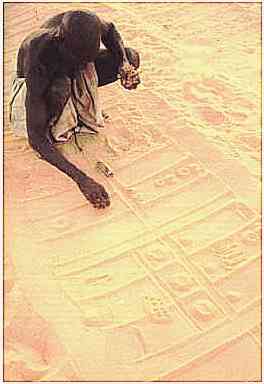
THE STATE AND AFRICAN INDEPENDENT CHURCHES IN BOTSWANA
A statistical and qualitative analysis of the application of the 1972 Societies’ Act
Index page for this webbook
Wim van Binsbergen

 |
THE STATE AND AFRICAN INDEPENDENT CHURCHES IN BOTSWANA A statistical and qualitative analysis of the application of the 1972 Societies’ Act Index page for this webbook Wim van Binsbergen |
 |
ABSTRACT. Tension between coercion and consensus is inherent to any state system, and informs state-church relations. Post-Independence Botswana is of comparative interest in that the Botswana political culture has emphasized national consensus as the state elite’s main stategy in controlling the civil society. While churches constitute a power-base irreducible to the state, state-church interaction offers insights in the state elite’s options of furthering its dominance without exploding consensus. The Societies Act (1972) defines the setting for such strategies, which vary from co-optation and state use of a religious idiom, via bureaucratic interference beyond the letter of the law (e..g. in state control over the nomenclature of churches) to the imposition of an alien bureaucratic logic. Limiting cases are provided by religious organizations pursuing a historic non-Christian idiom in the trappings of a church. The conclusion problematizes the proliferation of formal organizations in modern Africa, and argues the limited applicability of the acquiescence concept As elaborated by Matthew Schoffeleers.
Click on the links to access the various parts of this Web book
[1]
Field-work was conducted in November 1988 to October 1989,
August-September 1990, June-July 1991, May 1992, October 1992 and
February, 1994, in Francistown and rural communities in
Botswana’s North-East District, with a short excursion into
southwestern Zimbabwe, and consultation of government files in
Gaborone. I am greatly indebted to the Applied Research Unit,
Ministry of Local Government and Lands, Republic of Botswana, for
their hospitality extended to me as a visiting researcher; to the
African Studies Centre, Leiden, the Netherlands, for leave of
absence and research funds; to my wife and children for
whole-heartedly sharing in the field-work; to Chuke Amos, Ennie
Maphakwane, Edward Mpoloka, Joshua Ndlovu, Dikeledi Moyo and
Rebecca Siska for research assistance; to church leaders,
adherents, ritual leaders, adepts, neighbours, friends, and
respondents in the Francistown region; to officials both in
Francistown and Gaborone. Under the Botswana Societies Act
(Republic of Botswana 1977: section 30), the records of the
Registrar of Societies are open for consultation by the public,
and I am greatly indebted to the Registrar of Societies and
individual officers for facilitating my perusal of the files in
every conceivable way. Finally I wish to express gratitude to
Matthew Schoffeleers, Robert Buijtenhuijs, Bonno Thoden van
Velsen and Emile van Rouveroy van Nieuwaal for valuable comments
made on an earlier draft, which was presented at the conference
on ‘Power and Prayer’, Institute for the Study of
Politics and Religion, Free University, Amsterdam, 10-14 December
1990. A much shortened version of the present argument, without
any of the statistical analyses on which it is largely based,
appeared as van Binsbergen 1993a in a collective volume entitled Power
and prayer: Essays on religion and politics,
VU [ Free University ] University Press, eds. Mart Bax &
Adrianus Koster.
| page last modified: 11-02-01 14:50:13 |  |
|||
 |